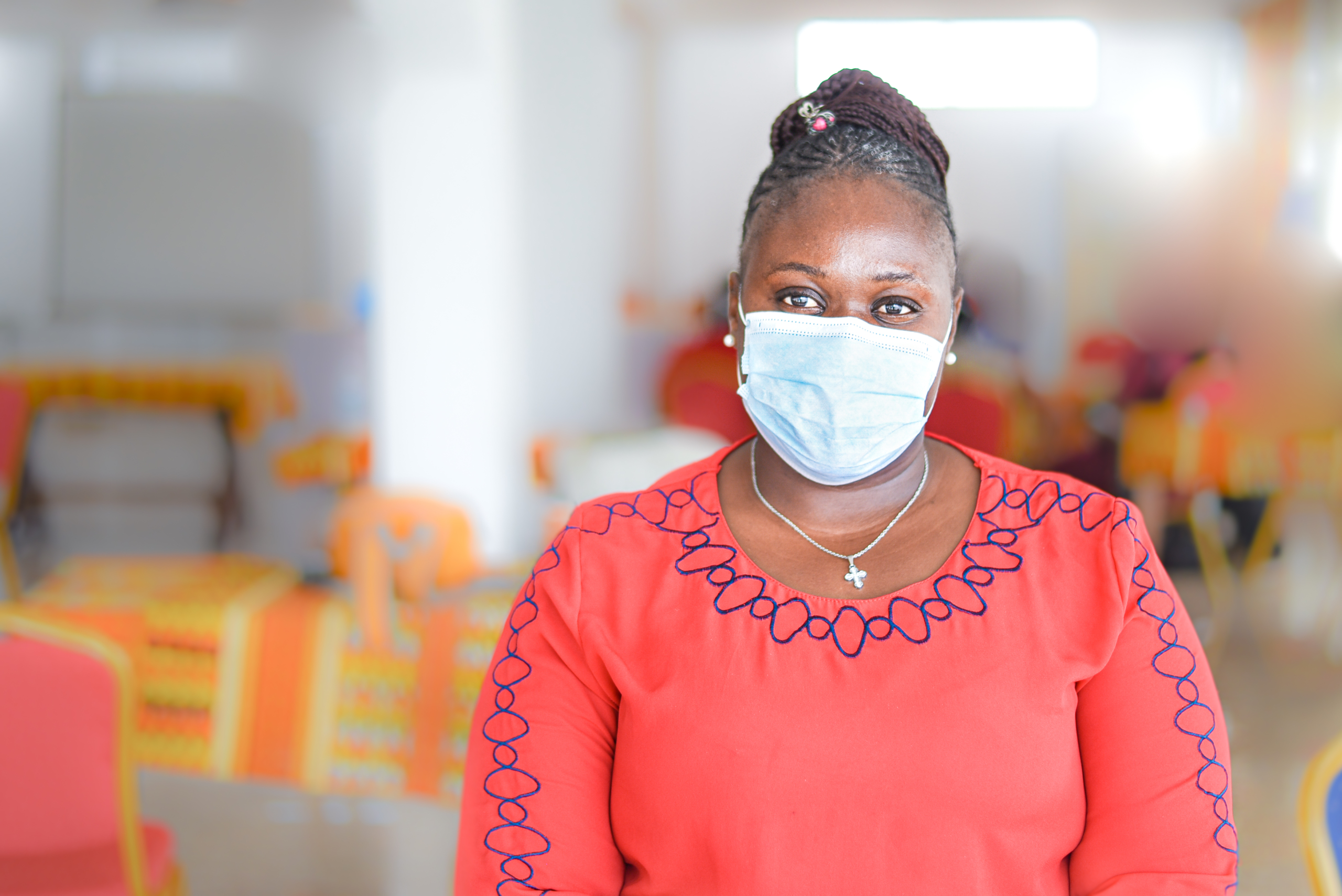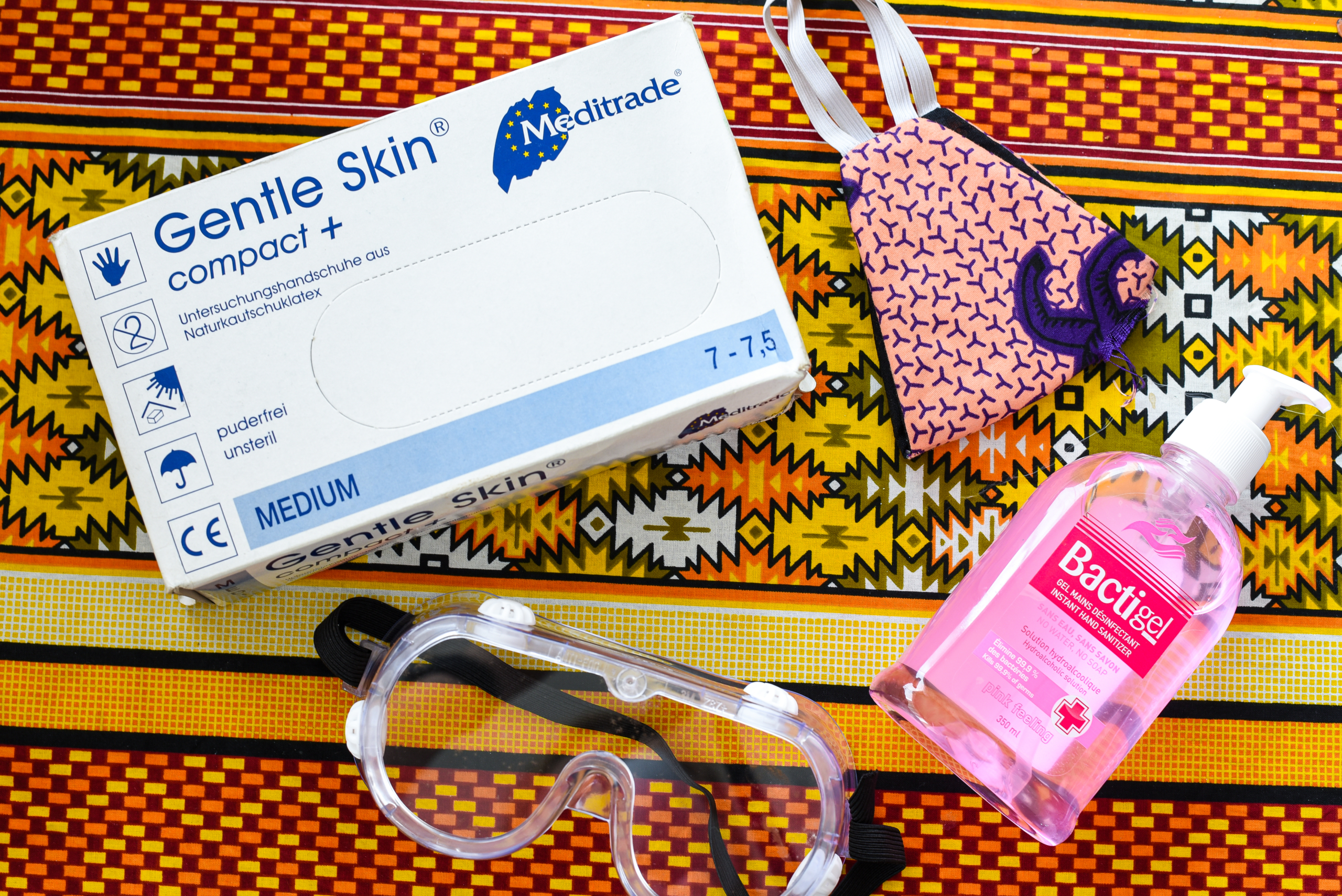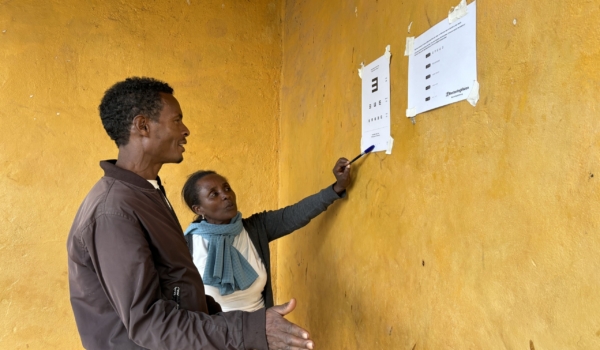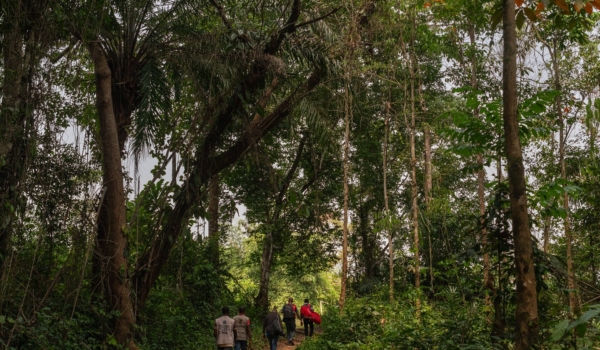As the world grappled with a new and unprecedented health threat, every country faced the challenge of training and empowering their frontline health workers to safely identify and treat patients and help control the spread of the virus. In Liberia, this difficult task was supported by Last Mile Health, a global non-profit organization dedicated to ensuring those in remote communities have access to quality primary health care.
Organizing this mobilization of frontline health workers is a massive undertaking, though Last Mile Health is no stranger to emergencies—or the extensive behind-the-scenes work that is needed in order for communities to get the support they need.
The West African Ebola outbreak in 2014-2016 brought into sharp focus the need for a nationally coordinated response led by the government to train and deploy health workers into all communities. In addition to Ebola’s direct impact, the region saw interruptions to essential health services, further highlighting the need to ensure the continuity and safety of routine health care. From 2014-2016, more than 10,000 people died from HIV, tuberculosis and malaria in Liberia, Guinea and Sierra Leone. Childhood immunizations also decreased, as well as the rates of mothers giving birth in health facilities, increasing the risk of child and infant mortality. But because of the impactful work carried out by community health workers during that crisis, Liberia’s Ministry of Health, alongside its partners like Last Mile Health, launched the National Community Health Assistant Program in 2016 to hire a paid community health worker for every rural community in the country.
Four years later, that program is supporting some of the main programs (including Infection Prevention and Control, Case Management, Community Engagement, and Risk Communication) in Liberia’s COVID-19 response. Last Mile Health is working with Liberia’s Ministry of Health and other partners, including Resolve to Save Lives (RTSL), an initiative of Vital Strategies, to establish a curriculum and carry out trainings so local frontline health workers—including clinicians and non-clinicians serving in health facilities—can effectively and safely identify and treat COVID-19 patients. In coordination with RTSL, the Ministry of Health and the Infection Control Africa Network (ICAN), Last Mile Health is also conducting facility visits and ensuring that priority health facilities throughout the country are able to promote quality assurance for infection prevention and control.

Comfort King-Gbaie, Quality Assurance Coordinator for the Liberia Ministry of Health’s Quality Management Unit
In collaboration with the Ministry of Health, Last Mile Health provided technical support for a comprehensive training curriculum for Infection Prevention and Control (IPC). Comfort King-Gbaie, a Quality Assurance Coordinator for the Ministry of Health’s Quality Management Unit, described a recent three-day IPC training she oversaw in the country’s capital of Monrovia: “We started with an overview of COVID-19 and then we talked about standard precautions for infection prevention and control, additional precautions, putting on personal protective equipment, taking off personal protective equipment, and hand hygiene… We demonstrated as facilitators and then asked the participants to do return demonstrations.”
The model of these trainings is designed to extend the curriculum’s reach to clinical leaders and those working on the front lines of patient care. Following this particular training, participants, “…will start in Montserrado and we expect that all that we’ve taught will be shared with those in the facilities as well to make sure that we all can keep safe while we are serving,” King-Gbaie added.
Funding from RTSL has supported Last Mile Health’s goal of training up to 900 frontline health workers throughout the counties of Grand Bassa, Grand Gedeh and Rivercess and up to 100 in Montserrado, the epicenter of the country’s outbreak. The training was led in the counties by the Director and Deputy Director of the National Quality Management Unit of the MOH with facilitators from Last Mile Health and other partners, including WHO.
While these trainings equip frontline workers to educate their communities, detect and report cases, support and monitor sick patients in home isolation, perform contact tracing, and ensure the safe continuation of regular primary care, health workers are also taught how to keep themselves safe. Health workers often function as beacons of not only knowledge, but of reassurance, helping to assuage feelings of confusion, fear and isolation that often accompany disease outbreaks. Ensuring they stay healthy means they are able to help their community to the fullest extent possible while minimizing their risk and the risk to their families.
A hurdle to health worker safety during the pandemic has been the global shortage of personal protective equipment (PPE). To address this barrier and support the health and safety of health workers—whether in a hospital setting or out in the community—Last Mile Health is procuring 1.5 million pieces of PPE, including 450,000 surgical masks and more than 1 million gloves. Because procurement will be an on-going challenge, Last Mile Health has also partnered with VillageReach, an organization with extensive supply chain knowledge, to engage with global vendors to determine how best to provide PPE to health workers moving forward.
An agile, quick and effective response to COVID-19 is what will contain the spread and minimize the impact on communities. But those responses don’t happen by coincidence; they happen when health workers get the training and equipment they need to keep their communities—and themselves—safe. As knowledge around the virus continues to evolve, so too will the agile responses orchestrated by Last Mile Health and its partners.





